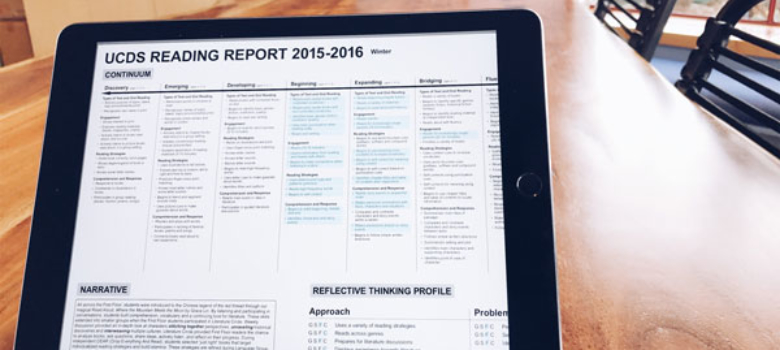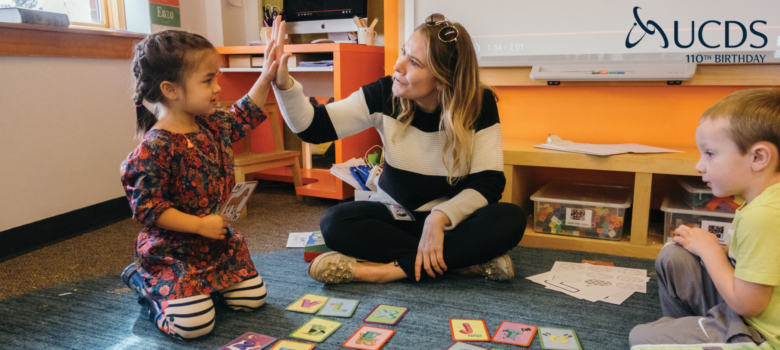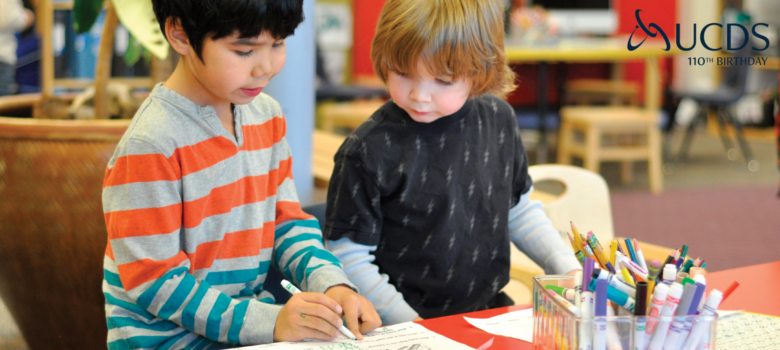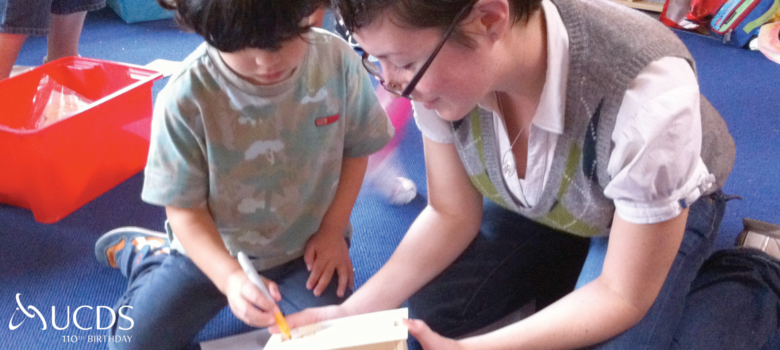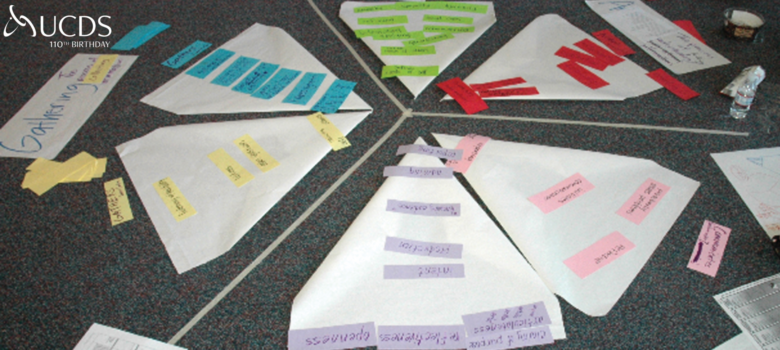By Jenn Drake, Early Elementary Teacher
Heavy into our narrative report writing season, one of the Resident Teachers asked me, “Why can’t we just say ‘this kid is struggling?'” This question was based on feedback she got on one of her reports. She said she was trying to be honest, that in fact, the child did struggle with some social problem-solving. So why couldn’t she say it? It was a great question, and one that caught me off guard. My gut reaction most definitely told me that “This kid is struggling” was the wrong way to say it. But why?
I like to write in a candid and clear way, so I understand her motivation. But for me, it just comes back to how the language impacts the environment. Language is everything! Imagine as a parent, how do you read that line? You might think, “Gosh, my kid sucks at this. I must be a terrible parent.” Or maybe it’s more of a blame game, “Okay, you’re telling me my kid is no good. What are you going to do about it?” Either way, you’re upset and left hanging. Your next step is probably a call with the teacher.
Think also about yourself. You now look at this child every single day with the mantra, “This kid is struggling.” How are you going to react to that child in a situation where she needs help? Where she’s frustrated? Where she’s out of control? How available will you be if you already know this child is struggling? Sadly, I think it might be a little easier for you to write her off as a lost cause (not that you would!)
How’s the child going to respond in an environment where it seems like her parents are a little more upset than usual? Or at school with a teacher who sighs before jumping in to offer help? And if we’re all about being better for the sake of our children, I think there’s a better way.
That’s why we use language like “When inevitable problems arise during play, Mary is working on problem-solving with the support of teachers.” I would say that is equally as candid and clear. This time, however, we’ve got a preposition that tells parents, and reminds us as teachers, that this kind of problem is typical. It’s a natural, normal, and to-be-expected part of growing up! It also states that Mary is working on it. It’s in action, it’s positive, it’s growth-oriented. And finally, the teachers are already helping. It says we are a team, getting through this whole growing-up business together in a positive way.
That changes everything.

